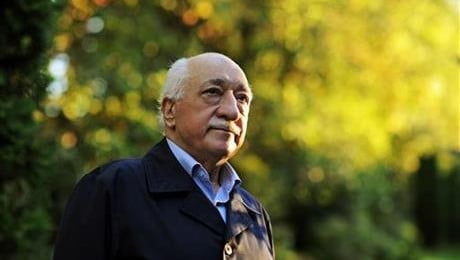News

Gulen-linked RI schools remain calm amid coup in Indonesia
Two students wearing red long-sleeve shirts combined with checkered skirts were chatting fluently in English while playing at the grounds of Kharisma Bangsa Bilingual boarding school on Tuesday afternoon. Meters away, in a guest room within the school’s lobby, a parent was speaking with a Turkish teacher.

Kyrgyzstan: Antagonism Grows with Turkey Over Gülen Links
In the eyes of the government of Turkey, where Gülen is from, the sprawling building immaculately cast in the bright colors of the red Kyrgyz flag is little short of an incubator of terrorism and plots to subvert the state. Ankara’s antagonism to Gülen’s international influence has deep roots, and the Turkish government’s attempt to link the educator with the recent failed coup is intensifying that animosity. But Kyrgyzstan, which is host to at least a dozen Gülen-linked schools and one university, is holding its ground — up to a point.

Turkey’s anti-Gulen campaign: Strengthening militants and jihadists
The dilemma for the Pakistani government is stark. Turkish prime minister Binali Yildirim has warned that Turkey would be at war with any country that cooperates or aids the Gulen movement. Yet closing down schools that prepare their students for a modern society and economy is something Pakistan’s deeply troubled education sector can ill afford.

[Alleged] “Coup leader” Gülen’s friendships with the Catholic Church
Erdogan’s propaganda channels and instruments have been referring to Hizmet as the “Gülenist Terror Organisation” for years and over the past months, this full-fledged criminalisation campaign has often seen relations between the Hizmet network and the Catholic Church – including the Vatican – being dragged into it. This has primarily been witnessed in the most staunchly nationalist press channels.

Imran Khan denounces expected closure of Pak-Turk schools
Pakistan Tehreek-e-Insaf (PTI) Chairman Imran Khan condemned the expected move to close Pak-Turk schools across the country.
“We stand firmly by Turkish democracy but closure of Pak-Turk schools in Pakistan, which has a high illiteracy rate, could be disastrous for the country,” he said.

Turkey’s president orders closure of 1,000 private schools linked to Gülen
Turkey’s president has signed a decree that allows for the extension of the pre-charge detention period and the closure of institutions linked to Fethullah Gülen, the exiled cleric blamed for masterminding last weekend’s failed military coup.

A Different Kind of Coup? Why You Should Care About A “Reclusive” Turkish Imam in Pennsylvania
We should consider not only what people say about Fethullah Gülen, but what he says himself. Decades of speeches and publications make this possible and reveal certain attributes. For example, Gülen advocates a form of Sufi humanism. He seeks collaborative relationships across religious, cultural, and national borders. He is concerned about the poor and marginalized around the world.

Turkey’s Reichstag Fire
President Erdoğan, apparently a firm believer in the adage that a good scandal should never go to waste, authorized an immediate crackdown against so-called Gülenists. The numbers are dizzying. In less than a week after the coup attempt, the government detained 6,823 soldiers, 2,777 judges and prosecutors (including two judges on the Turkish Constitutional Court), and dozens of governors.

Calgary man accused of helping plot Turkish coup
The photo that reportedly shows Hanci with Gulen is not actually Hanci. Hanci works as an imam for Corrections Canada and Alberta Government Correctional Services, according to Malik Muradov, executive director of the Intercultural Dialogue Institute of Calgary, who added that he also volunteers much of his time to the Turkish community.

Turkish-American community grapples with Turkey coup’s aftermath
Dr. Gokcek said he is not optimistic. He is fearful about the growing tensions in the country and coup sympathizers who might be stigmatized as traitors. On a basic level, Gokcek said, he has been able to sit down and eat with other Turkish-Americans with whom he might not always agree. “Some of those friends, I might not be able to now,” he said.

Erdogan Uses Coup Like Hitler Used Reichstag Fire, Austrian Far-right Leader Says
Turkey’s failed coup and Turkish President Tayyip Erdogan’s subsequent purges of state institutions are reminiscent of the Reichstag fire in Nazi Germany and its use by Hitler to amass greater power, the head of Austria’s far-right Freedom Party said.

Astonishing questions about the failed coup attempt in Turkey
Many people watching the stunning events in Turkey believe that the coup attempt was nothing but a pure ‘theater.’ The leader of the coup was a pro-Erdogan General Mehmet Disli, brother of AKP deputy Saban Disli, who defines himself as Erdogan’s confidante. The poorly-planned coup attempt has started with the capture of Istanbul’s Bosporus Bridge. […]




















